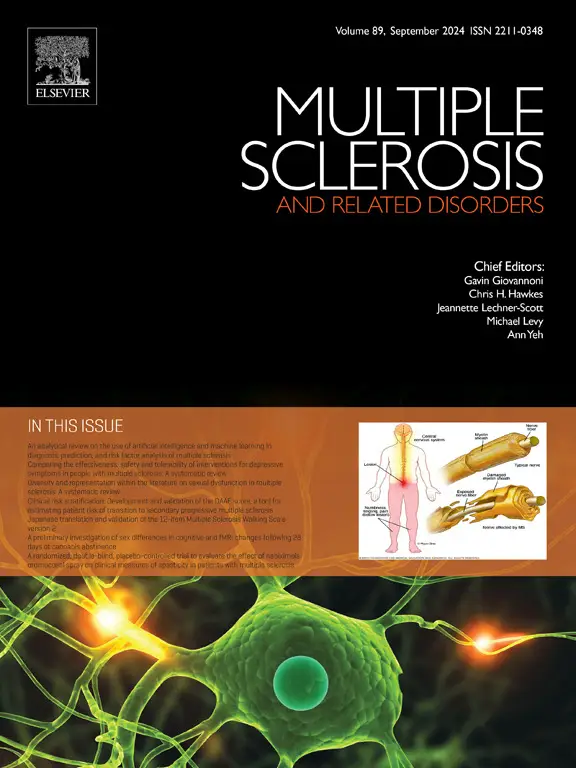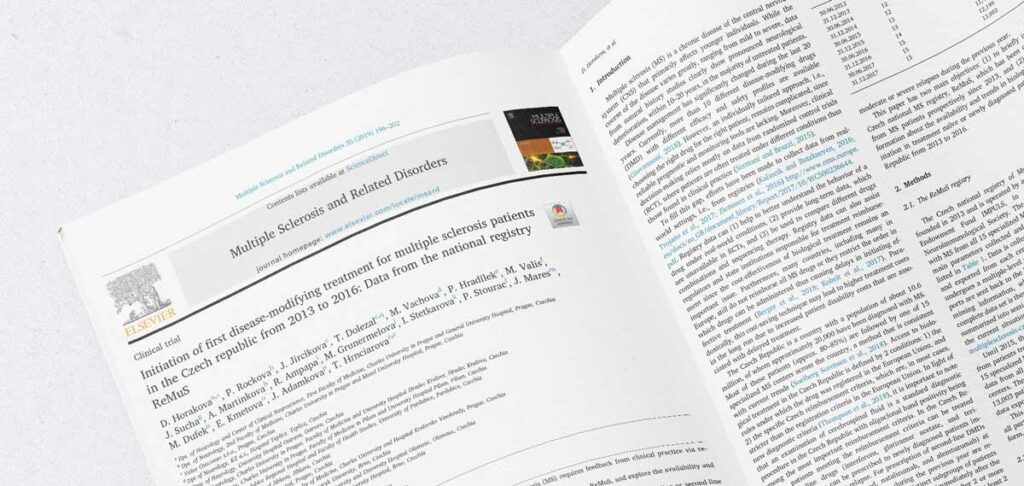Proper management of multiple sclerosis (MS) treatment requires feedback from clinical practice provided by registries. This article focuses on the introduction of the Czech National Multiple Sclerosis Registry, ReMuS, and examines the availability and use of disease-modifying drugs (DMDs) in the Czech Republic. The study analyses patients who started their first DMD treatment between 2013 and 2016 and compares the characteristics of patients who started treatment in different years. The results of the study provide important insights into advances in DMD treatment in the Czech Republic and trends in treatment initiation over this period.

Horakova, D., Rockova, P., Jircikova, J., Dolezal, T., Vachova, M., Hradilek, P., Valis, M., Sucha, J., Martinkova, A., Ampapa, R., Grunermelova, M., Stetkarova, I., Stourac, P., Mares, J., Dufek, M., Kmetova, E., Adamkova, J., & Hrnciarova, T. (2019). Initiation of first disease-modifying treatment for multiple sclerosis patients in the Czech republic from 2013 to 2016: data from the national registry ReMuS. In Multiple Sclerosis and Related Disorders (Vol. 35, pp. 196-202). Elsevier BV. https://doi.org/10.1016/j.msard.2019.08.003 PMID: 31400559
Abstract
Introduction: Proper management of multiple sclerosis (MS) requires feedback from clinical practice through registries.
Target: To introduce the Czech national multiple sclerosis registry, ReMuS, and explore the availability and use of disease-modifying drugs (DMDs).
Methods: The analysis focused on patients who started their first treatment with either first-line or second-line DMD drugs, based on reimbursement criteria set by Czech regulatory authorities. Baseline information was used to predict relapse after starting DMD treatment and to compare patients who started DMD treatment in different years.
Results: A total of 3,328 patients started DMD treatment for MS between 2013 and 2016; 3,203 with first-line drugs and 125 with second-line drugs. The proportion of patients who started treatment with second-line drugs increased from 1.8 % in 2013 to 4.7 % in 2016. The incidence of relapse within one year of starting DMD treatment was significantly associated with (1) Expanded Disability Status Scale (EDSS) score just before starting DMD and (2) the number of previous relapses. Both parameters were significantly lower in patients who started treatment in the later years of the follow-up period.
Conclusion: Data from the ReMuS registry point to improvements in the management of MS treatment in the Czech Republic. However, a relatively low percentage of patients started treatment with second-line drugs, which is in contrast to trends in other countries.
The full article is available in English by logging in to the journal's website Multiple Sclerosis and Related Disorders.

